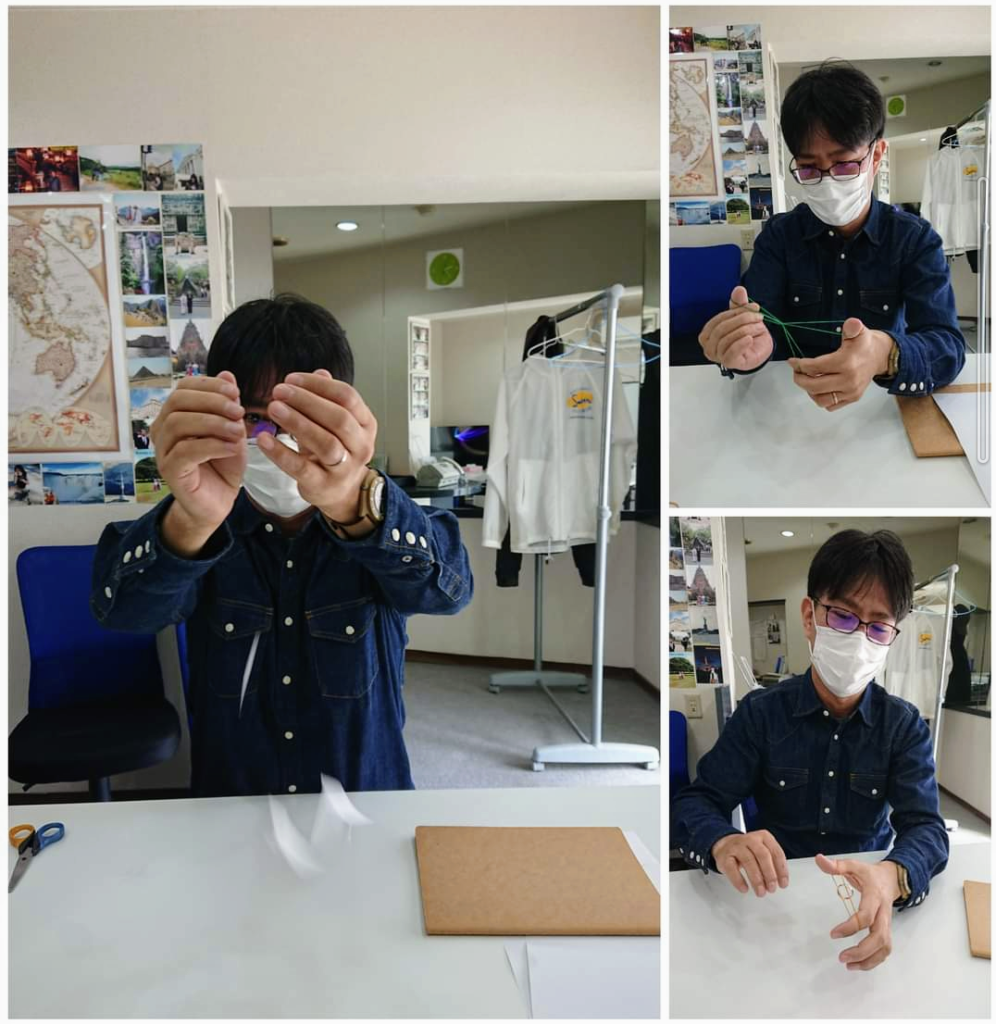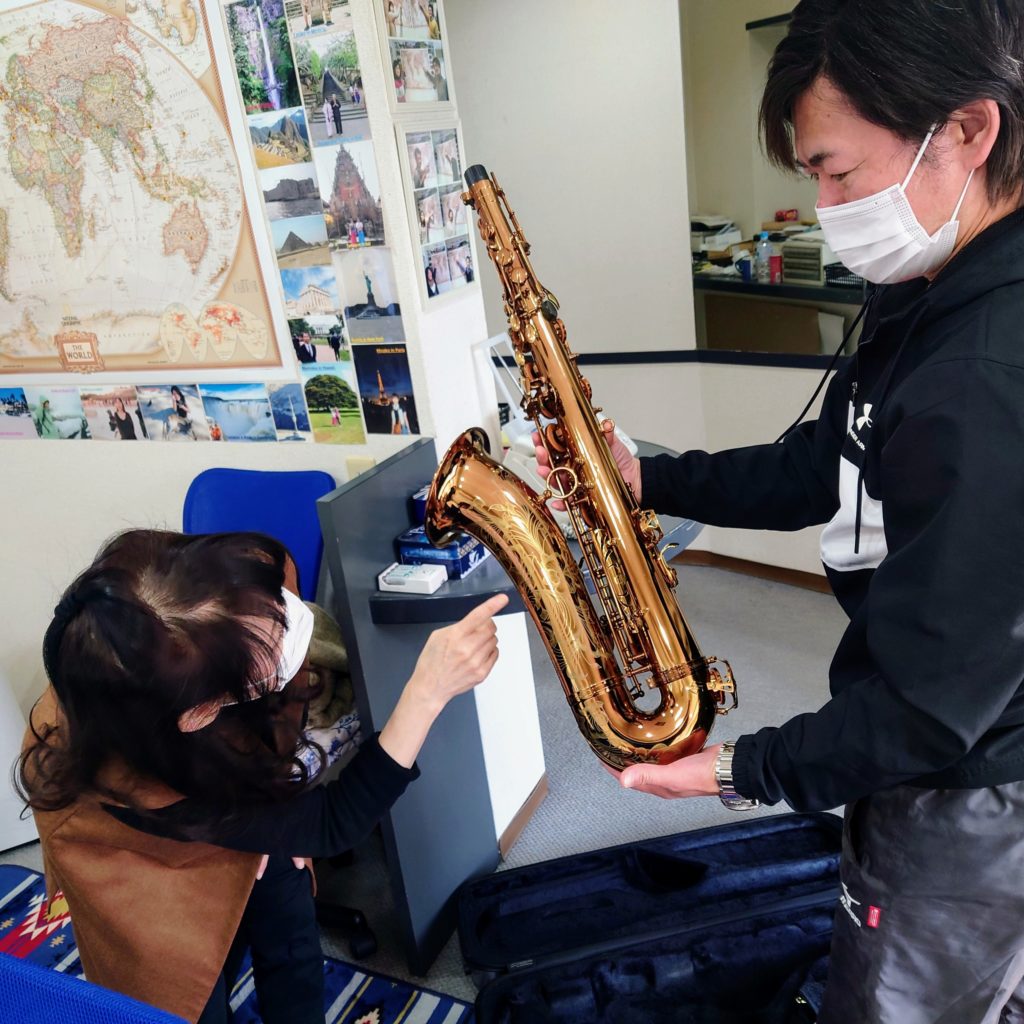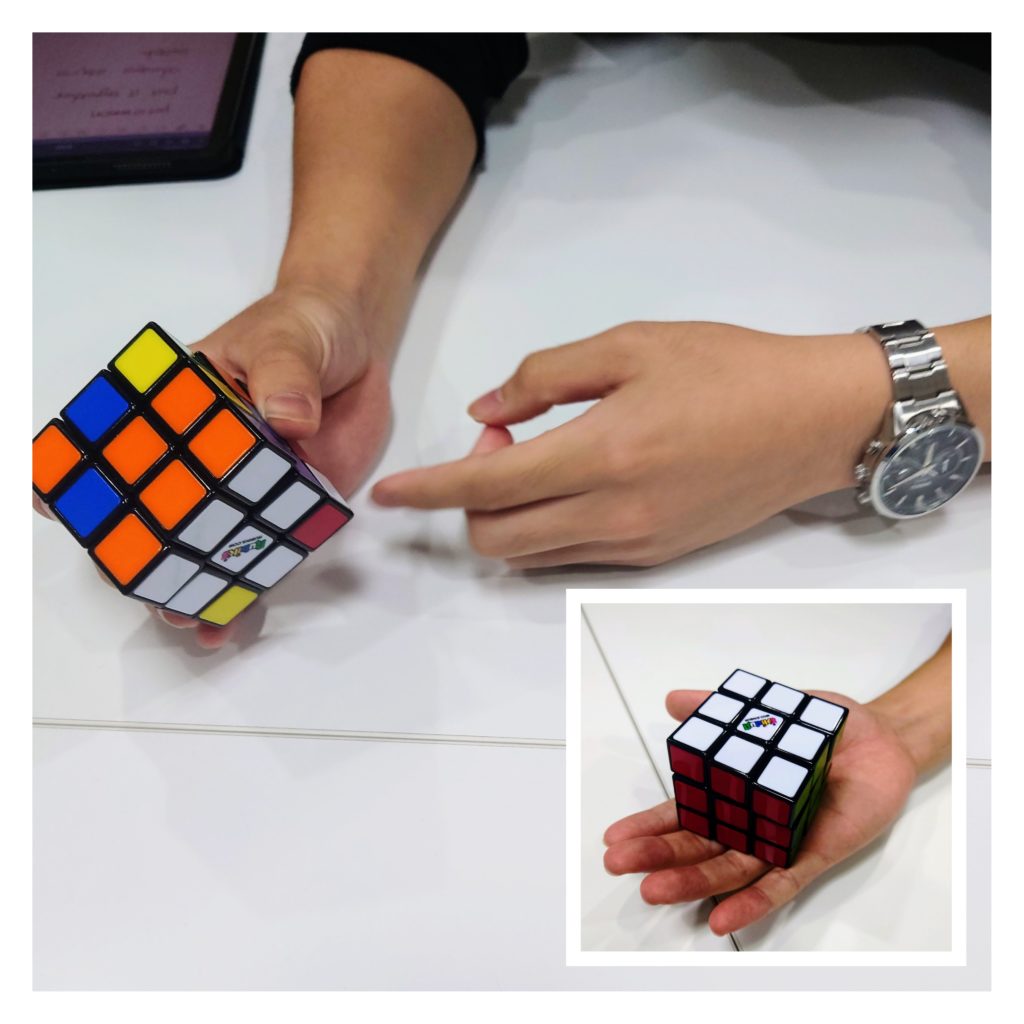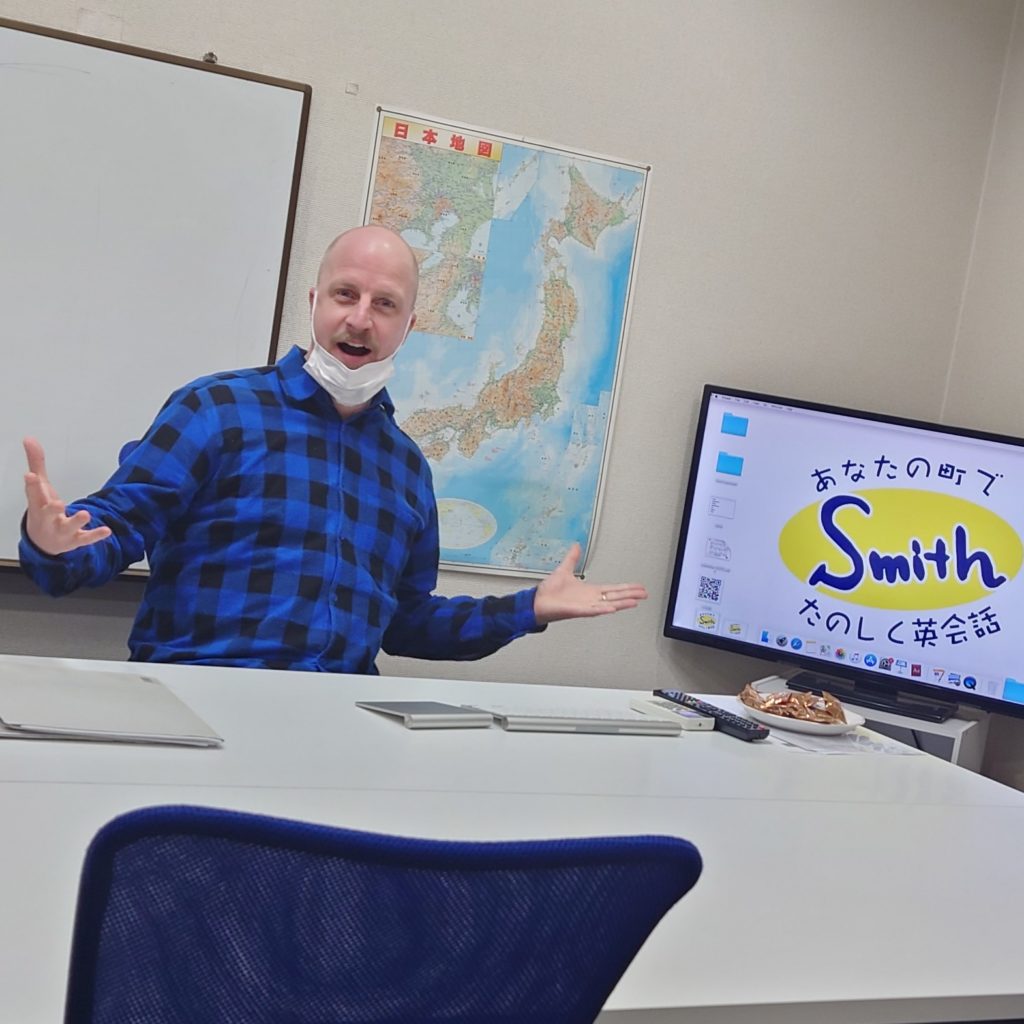Hello, Tom from SSE Katsura here. Today I’d like to talk about how ‘curiosity’ helps my students with English learning. In the past I wrote about the benefits of making English conversation lessons fun and engaging. I strive to coach English speakers of all levels to be curious and enhance their communicative skills. Many of my students learned to become proactive in the classroom and thus improve their English speaking experience. This is particularly encouraging and rewarding. Curiosity makes joy out of mastering the English language.
‘Do you like magic?’

‘Do you like magic?’ a student asked during a group lesson. When other student and I replied ‘Yes’, we were shown a short magic show. This subsequently led to an amusing conversation between students. ‘When did you start doing magic?’, ‘How can I learn some magic tricks?’, ‘Can you show me the paper trick again?’ were some of the questions. My job was to observe the conversation and help students to make their questions and answers in a correct English form. The magic element made our lesson a lot of fun indeed.
‘May I see the saxophone?’

‘May I see the saxophone?’ was a question from a student during another group lesson. It started when one student talked about his morning practice. It was followed by a conversation about playing musical instruments, listening music and going to live concerts. I assisted with sentence structures and English vocabulary. Wonderful conversation lesson. Having the actual saxophone in the classroom peaked everyone’s curiosity and interest to talk more.
‘I can solve the Rubik’s Cube’

One of my man-to-man course students enjoys watching YouTube videos in his free time. To help him get better at talking in English, I often ask him to speak about the videos he watched. He recently told me: ‘I watched a video about the Rubik’s Cube and now I can solve it.’ As he brought his own cube to the class he continued with a full demonstration in English. I was amazed. Not only did he solve it in front of my eyes, but also tried to explain every step in English. I listened, asked questions and helped him to use the appropriate English vocabulary explaining his steps. Without a doubt, this was a spectacular English conversation lesson time.
Be curious…

I don’t know how to do magic or how to play the saxophone. And I still can’t solve the Rubik’s Cube without my student’s instructions. However, I do know how to give my students the right amount of time and space to be curious during English lessons and to help them become good English communicators. I am curious about my students interests and their desire to reach their English language goals. And everyone is welcome to be curious with us.
Tom, SSE Katsura.
We meet all kinds, don’t we Tom? So many interesting English language learners out there! You are a lucky teacher, and they are lucky students!
Using students’ interests for English conversation is a great idea. It’s fun for everybody! Keep up the great work, Tom!
Thank you Jim. Yes we do and it’s so much fun.
Thanks Derek. I think it’s the best way to keep them interested in improving.